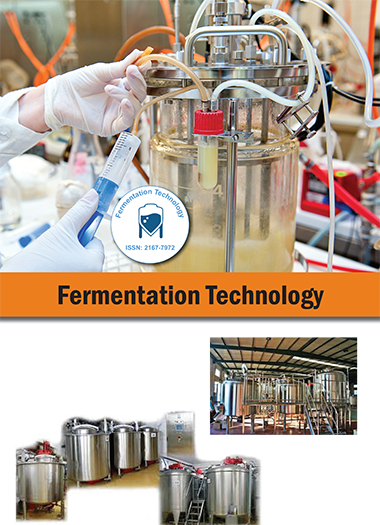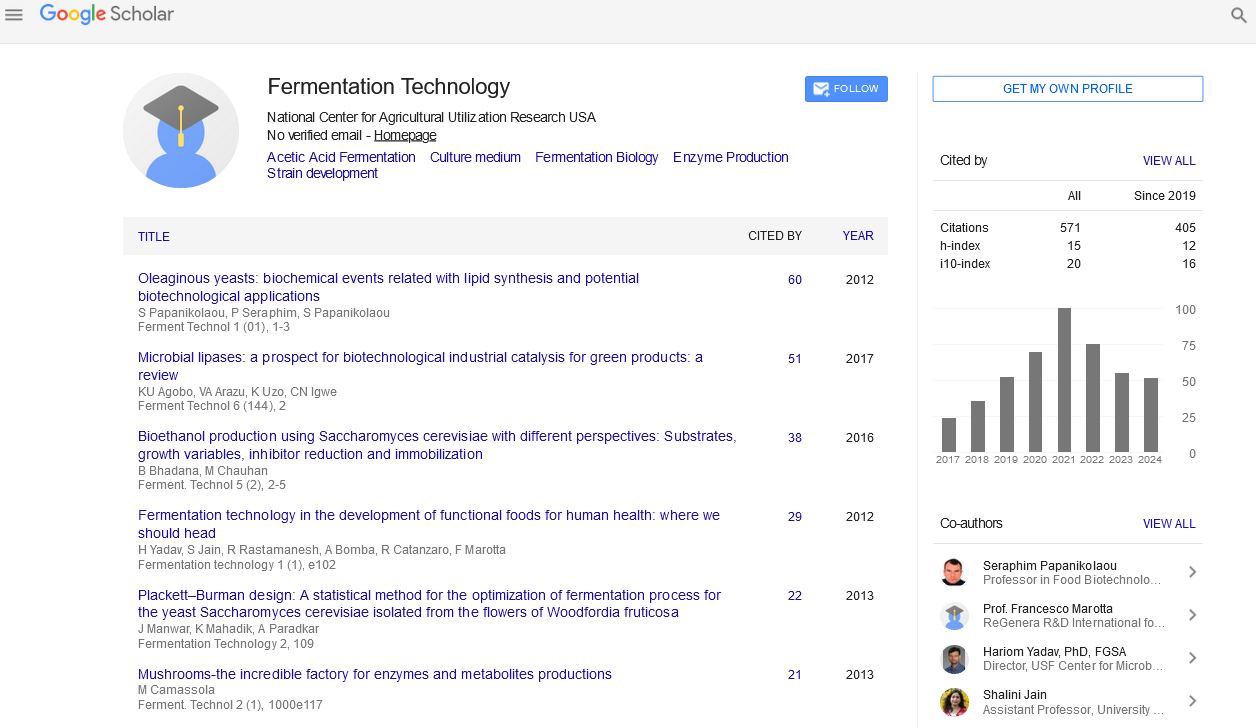Indexed In
- Open J Gate
- Genamics JournalSeek
- Access to Global Online Research in Agriculture (AGORA)
- RefSeek
- Hamdard University
- EBSCO A-Z
- OCLC- WorldCat
- Publons
Useful Links
Share This Page
Journal Flyer

Open Access Journals
- Agri and Aquaculture
- Biochemistry
- Bioinformatics & Systems Biology
- Business & Management
- Chemistry
- Clinical Sciences
- Engineering
- Food & Nutrition
- General Science
- Genetics & Molecular Biology
- Immunology & Microbiology
- Medical Sciences
- Neuroscience & Psychology
- Nursing & Health Care
- Pharmaceutical Sciences
Effect of pH on the production of hydrolytic enzymes of industrial interest by Bacillus licheniformis using sewage sludge as a low-cost culture medium
World Congress on Beneficial Microbes: Food, Pharma, Aqua & Beverages Industry
August 25-27, 2015 Valencia, Spain
Bruno Rodri�?guez-Morgado, P. Caballero, M. Carballo, M. Tejada, C. Aragon, A. Garcia-Martinez, J.J. Salas, J. Parrado
Departamento de Bioquimica y BiologAa Molecular, Universidad de Sevilla. C/Profesor Garcia Gonzalez 2, 41012 Sevilla. Centro de Investigacion, Tecnologie Innovacion de la Universidad de Sevilla. Edificio Celestino M
Posters-Accepted Abstracts: Ferment Technol
Abstract:
Management of sewage sludge has become a topic of increasing importance. This is because the treatment and final destination of these wastes are not growing at the same rate at which generated what is necessary to add the limited storage capacity of wastewater treatment plants or waste transfer centers. Current policies of different governments aims, among others, promote proecological management of sewage sludge, replacing traditional methods by new methods that lead to their stabilization and safe recycling. These methods can lead to the recovery of valuable raw materials from potentially dangerous others in order to permit their use in agriculture, industry or energy production. Moreover, exists a great enzyme market, mainly those with hydrolytic activities such as proteases, lipases or cellulases. Although its use has many advantages, the competitiveness of the enzymes compared with chemicals is limited by its high production costs. The use of a less expensive culture media and the stimulation of the production of these enzymes can significantly reduce production costs. Therefore, the use of tertiary materials as alternative substrates, available in large quantities and at lower cost, is an interesting option. In this work we have studied the effect of pH on the fermentation of sewage sludge by Bacillus licheniformis, a hydrolytic enzymes producer microorganism, in order to obtain several products for specific agronomic applications.
Biography :
Bruno Rodríguez Morgado is a PhD student with a experience of eight years in enzyme production by microbes and the production of enzymatic extracts of several agroindustrial by-products like feathers, sewage sludges, grape pomace, etc.
Email: bromo@us.es

